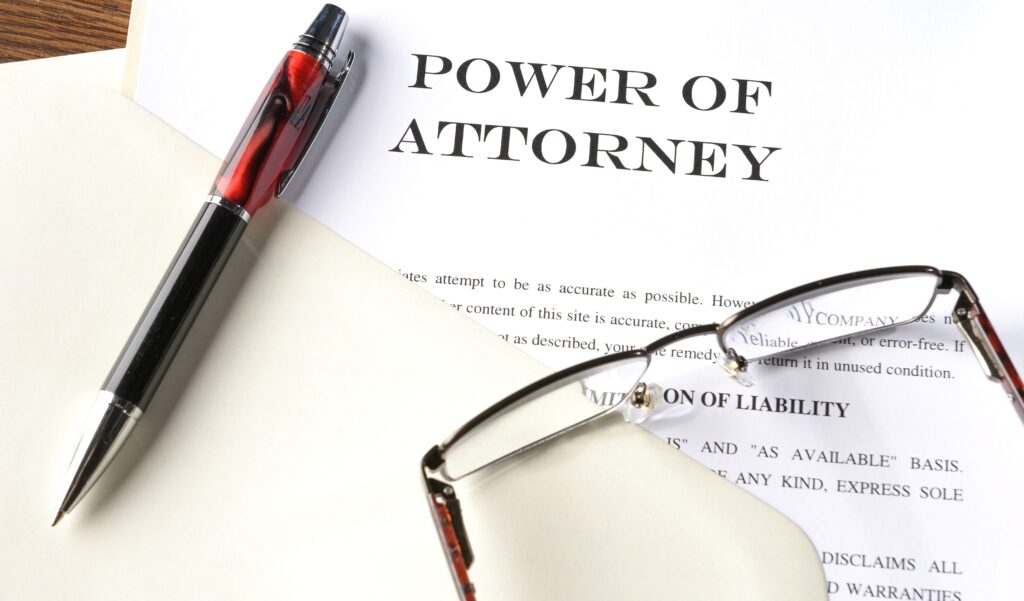Imagine if you became too poorly to make your own decisions about money, health and welfare. Who do you think would take control of your bank accounts, savings and investments? Who would make decisions on the type of care you receive or where you should live?
You might assume these powers fall to your spouse or family. But in fact, they have no automatic, legal right to act on your behalf. In the absence of a Power of Attorney, the Court of Protection may need to appoint a deputy to make those decisions on your behalf.
Whilst your spouse or other family members could apply to become a deputy, their powers would be limited. And it will cost hundreds of pounds to apply, then renew their deputyship each year. On top of the costs, it can take several months for the process to work its way through the courts, leaving a period of anxiety and uncertainty.
If no-one applies to become your deputy, or if the Court of Protection declines an application, then the local authority will usually be appointed as your carer. So, your local council will end up making decisions on where you live and what healthcare you receive.
If you don’t fancy that, it could be time to consider getting a Power of Attorney into place. This is a legal document that appoints one or more people that you truly trust, to make financial and / or health related decisions if you lose capacity.
Why bother if you feel young, fit and healthy?
Note the word “if”. A Power of Attorney is a bit like an insurance policy, which ideally, you would hope never to use. It only comes into effect if you do lose mental capacity.
Of course, this means that you can only set up a Power of Attorney whilst you are fit and able. If medical professionals make the call that you have lost mental capacity, then it’s too late.

Get a Power of Attorney when you’re young and healthy
Now, let’s clear up some of the jargon and terminology. If you are the person giving power to someone else, you’ll be known as the Donor.
The person(s) you appoint to make decisions on your behalf is the Attorney. This could be family, friends or professionals, such as a solicitor. It certainly needs to be one or more people that you trust implicitly to act in your best interests.
There are different types of Powers of Attorney (PoA).
A General or Ordinary PoA allows you to appoint someone else to conduct transactions on your behalf, but only whilst you have mental capacity. This can be handy, for example, if you spend a lot of time overseas and you need someone in the UK to deal with your banking.
This is no good if you lose mental capacity, though. The power would be lost, along with your own ability to make decisions.
To ensure someone else can look after your best interests if you become unable to yourself, you need a Lasting PoA. Or a variation of that, depending on where you live.
Power of Attorney in England and Wales
There are two types of Lasting Powers of Attorney and you can choose either or both:
- Health and Welfare
- Property and Financial Affairs
With a Health and Welfare Lasting PoA, your Attorney will be able to decide things like:
- your daily routine, for example washing, dressing, eating
- medical care
- moving into a care home
- life-sustaining treatment
Don’t worry about the prospect of Attorneys “over-ruling” your own decisions whilst you’re still able yourself. The power only comes into effect when medical professionals officially agree that you can no longer make decisions for yourself.
With a Property and Financial Affairs Lasting PoA, your Attorney will be able to conduct transactions like:
- managing a bank or building society account
- paying bills
- collecting benefits or a pension
- selling your home
With this one, it is possible for your Attorney to assume power immediately, but only if you want them to.
Lasting Powers of Attorney can be drafted on the government’s website, although you should consider professional help if you have any doubts or concerns.
For more information, guidance, and advice, try:
Once you have drafted the Lasting PoA, it must be registered with the Office of the Public Guardian. This costs £82 per power, per person. So that’s £328 for a couple to register both types of power.
Registration costs are on top of any professional fees charged for having the documents drafted in the first place. It’s worth remembering, though, this is money well spent if you ever do lose mental capacity. It’ll be much more expensive and take a lot longer if no PoA is in place.
Power of Attorney in Scotland and Northern Ireland
In Scotland, there are 3 types to choose from:
- Continuing Power of Attorney
- Welfare Power of Attorney
- Combined Power of Attorney
A Continuing PoA ensures your financial affairs can be administered by someone else after you lose capacity. The Welfare PoA does a similar job to the Health and Welfare PoA in England and Wales.
As the name suggests, the Combined PoA includes both powers. It costs £81 to submit PoA documents to the Office of the Public Guardian in Scotland.
For more information about Powers of Attorney in Scotland, try mypowerofattorney.org.uk. This site provides information videos, as well as resources, broken down by local authority.
You can also check out:
The situation is different again for those in Northern Ireland. There is no Power of Attorney for health and welfare, only finance and property.
This time, it’s not a Lasting or Continuing PoA, but an Enduring PoA. More information can be found at:
- MoneyHelper (Northern Ireland)
- Office of Care and Protection (Northern Ireland)
- Law Society of Northern Ireland
Getting help with your Power of Attorney

It’s possible to create your own Power of Attorney document using guidance on websites like LawDepot. This walks you through a step-by-step process and takes into account whether you’re in England, Wales, Scotland or Northern Ireland.
Watch out for terms and conditions around ‘free’ offers. You could be offered a free trial subscription service, which automatically begins charging after a period of time.
You can also find PoA templates online or at stationery stores.
Remember, if you do create your own Power of Attorney document, it must still be registered with the Office of the Public Guardian. Otherwise, you’re wasting your time.
Bear in mind, the cost of registration is around £80 per document per person, depending on where you live. It’s therefore important to get it right and well worth considering paying extra for professional help.
If you have any uncertainty around this at all, it’s better to get legal assistance. A qualified estate practitioner or solicitor will be worth the money to guide you through the process and get everything right.
Summary
It’s never too early to protect your future. Don’t make the error of thinking that Powers of Attorney are just for the elderly and infirm. Together with making a will, this forms a cornerstone of solid financial planning.
Read more about other steps to help Protect Your Family here. And if you’d like to begin working through a programme of financial coaching to become more financially organised, get in touch for a chat.




 Production
Production
